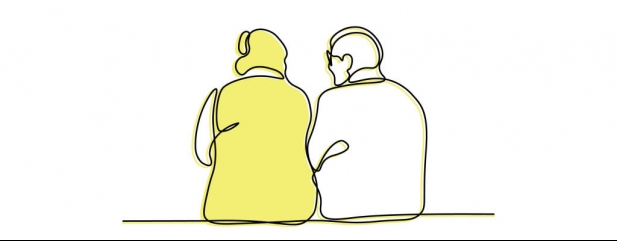Archived article
Please note that tax, investment, pension and ISA rules can change and the information and any views contained in this article may now be inaccurate.
Will my wife pay inheritance tax on my pension when I die?

Does my election using AJ Bell’s standard SIPP beneficiary facility to make my wife my beneficiary (100%) mean my pension would fall inside my estate and be counted for inheritance tax purposes?
I appreciate that a spouse is able to inherit their partner’s estate without inheritance tax being payable so it seems as if I have answered my question, but I’d appreciate clarity on this matter. Does this question only apply to someone leaving a pension to someone other than their spouse?
Also, how would the following situation work: I pass away first, leaving my wife my pension – however, she dies shortly afterwards but has not had time to change her SIPP election to our son so that he is the beneficiary. Would our son still inherit the money in these circumstances?
Guy
Tom Selby, AJ Bell Head of Retirement Policy says:
As you suggest in your question, assets bequeathed to a spouse or civil partner should be exempt from inheritance tax.
In most cases defined contribution pensions such as SIPPs will fall outside of your estate and be free from inheritance tax on death.
If you die before age 75 there should be no tax to pay on your SIPP funds by your nominated beneficiaries at all, while if you die after age 75 then the funds will be taxed in the same way as income when your beneficiaries come to make a withdrawal.
What’s more, if your beneficiaries die before age 75 they too can pass on any unused funds tax-free to their beneficiaries. As such, pensions are now more than just a retirement savings vehicle – they also offer a tax-efficient route to passing money down the generations.
For your pension to be passed on tax efficiently to the people you want, there are two key things you need to do.
Firstly, you need to make sure your nominated beneficiaries are kept up-to-date, and in particular where life events such as marriage, the birth of a child or divorce change your wishes.
While in some cases it is technically at the discretion of your pension provider whether or not to follow your nominations, it is rare a provider would not follow your wishes.
Secondly, your fund needs to be ‘designated’ to your beneficiaries within two years of your death. This just means transferring the funds into your beneficiaries’ names.
On your final question, the best way to make sure any unused pension is passed onto the person you want is to update your nominations accordingly. If this hasn’t been done, then the whole process risks becoming messy and expensive at what is often an emotionally stressful time. If you are unsure, speak to a regulated financial adviser, who can make recommendations based around your circumstances.
DO YOU HAVE A QUESTION ON RETIREMENT ISSUES?
Send an email to asktom@sharesmagazine.co.uk with the words ‘Retirement question’ in the subject line. We’ll do our best to respond in a future edition of Shares.
Please note, we only provide information and we do not provide financial advice. If you’re unsure please consult a suitably qualified financial adviser. We cannot comment on individual investment portfolios.
Important information:
These articles are provided by Shares magazine which is published by AJ Bell Media, a part of AJ Bell. Shares is not written by AJ Bell.
Shares is provided for your general information and use and is not a personal recommendation to invest. It is not intended to be relied upon by you in making or not making any investment decisions. The investments referred to in these articles will not be suitable for all investors. If in doubt please seek appropriate independent financial advice.
Investors acting on the information in these articles do so at their own risk and AJ Bell Media and its staff do not accept liability for losses suffered by investors as a result of their investment decisions.
Issue contents
Danni Hewson
Editor's View
Feature
Great Ideas
News
- THG’s shares take another hit on growth and margin setback
- Why China has bucked a global trend by cutting rates
- Oil hitting $100 could take the FTSE 100 to new record highs
- The trusts trading well below their 10-year average valuation
- Unilever’s food arm could be sold amid shift in strategy
- Wage inflation could hurt many shares
- Billions wiped off the value of construction stocks

 magazine
magazine








